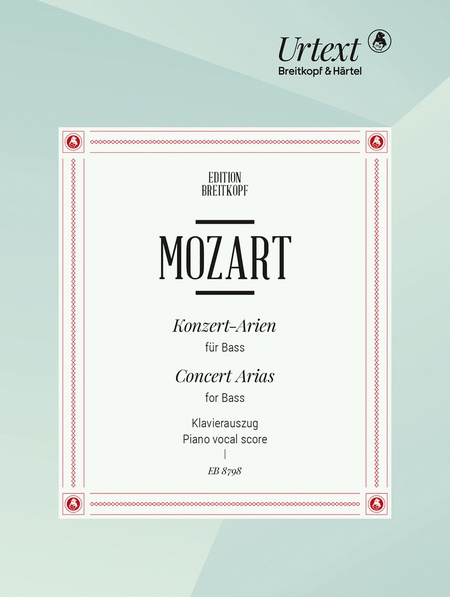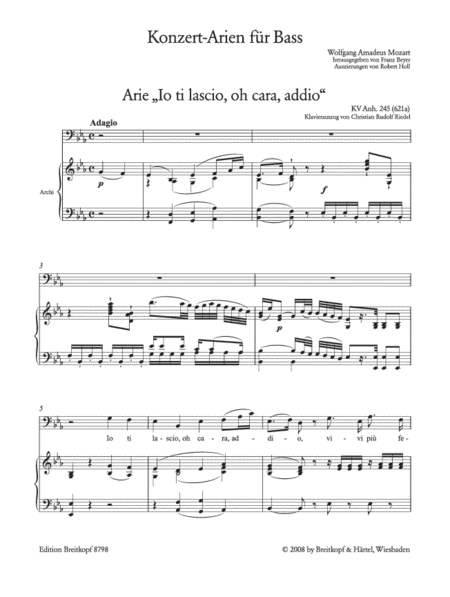Complete Concert Arias for Bass
Urtext
-
Ships in 3 to 4 weeks
Details
Description
SKU: BR.EB-8798
Urtext. Composed by Wolfgang Amadeus Mozart. Edited by Franz Beyer and Robert Holl. Voice; stapled. Edition Breitkopf. The nine surviving bass arias are chiefly works from Mozart's last creative phase, in which the composer offered little tidbits to the opera singers he was friends with. Aria; Classical. Piano/Vocal Score. 88 pages. Breitkopf and Haertel #EB 8798. Published by Breitkopf and Haertel (BR.EB-8798).ISBN 9790004183168. 9 x 12 inches. Italian / German.
The edition by Franz Beyer contains all Mozart concert arias for the lowest voice. The nine surviving bass arias are chiefly works from Mozart's last creative phase, in which the composer offered little tidbits to the opera singers he was friends with. Deserving special attention are the arias "Per questa bella mano" K. 612 (with obbligato double bass) and "Manner suchen stets zu naschen" K. 433. While editing this aria, Beyer completed the orchestral accompaniment that Mozart had only sketched, which means that this piece is now available for the first time with an orchestral accompaniment in an authentic Mozartian style. Very valuable for performance practice are the cadenzas and Eingange provided by the internationally acclaimed Mozart singer Robert Holl. Franz Beyer's edition, which incorporates the cadenzas and "Eingange" (ornamental flourishes) that Robert Holl has already performed in concert, provides extensive information on the performance practice of Mozart's vocal music (including appoggiaturas, recitatives, cadenzas/flourishes, dynamics) and supplies an individual commentary on the contents and historical position of each aria. Moreover, the volume contains a list of instructional methods from Mozart's day (with indications of facsimile reprints or English-language translations) as well as German and English translations of the predominantly Italian aria texts.
The nine surviving bass arias are chiefly works from Mozart's last creative phase, in which the composer offered little tidbits to the opera singers he was friends with.


 Share
Share